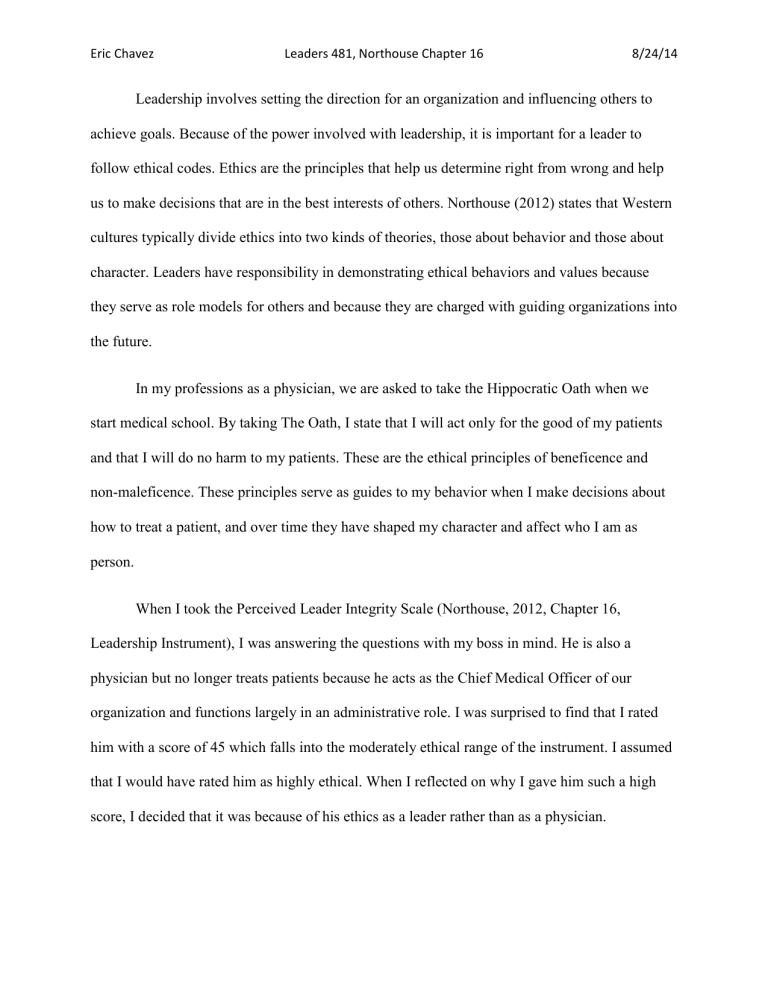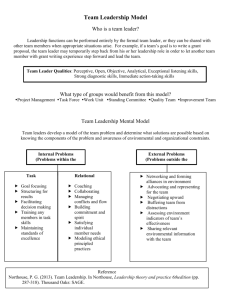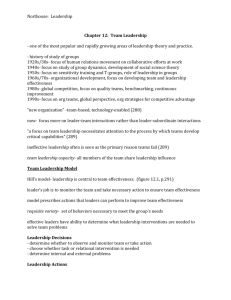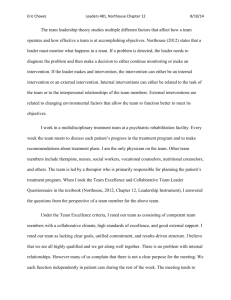File - Eric Chavez MD MMI

Eric Chavez Leaders 481, Northouse Chapter 16 8/24/14
Leadership involves setting the direction for an organization and influencing others to achieve goals. Because of the power involved with leadership, it is important for a leader to follow ethical codes. Ethics are the principles that help us determine right from wrong and help us to make decisions that are in the best interests of others. Northouse (2012) states that Western cultures typically divide ethics into two kinds of theories, those about behavior and those about character. Leaders have responsibility in demonstrating ethical behaviors and values because they serve as role models for others and because they are charged with guiding organizations into the future.
In my professions as a physician, we are asked to take the Hippocratic Oath when we start medical school. By taking The Oath, I state that I will act only for the good of my patients and that I will do no harm to my patients. These are the ethical principles of beneficence and non-maleficence. These principles serve as guides to my behavior when I make decisions about how to treat a patient, and over time they have shaped my character and affect who I am as person.
When I took the Perceived Leader Integrity Scale (Northouse, 2012, Chapter 16,
Leadership Instrument), I was answering the questions with my boss in mind. He is also a physician but no longer treats patients because he acts as the Chief Medical Officer of our organization and functions largely in an administrative role. I was surprised to find that I rated him with a score of 45 which falls into the moderately ethical range of the instrument. I assumed that I would have rated him as highly ethical. When I reflected on why I gave him such a high score, I decided that it was because of his ethics as a leader rather than as a physician.
Eric Chavez Leaders 481, Northouse Chapter 16 8/24/14
For example, I gave him a score of 4 which is the highest score regarding being interested only in tasks that bring him personal glory. This is evident to me when he fails to show interest in supporting my projects or the projects that others propose. If a project is not his idea or will not bring him recognition within the organization, he is not interested in supporting it. In fact, he allowed one of my projects to fail by withholding his support. The project was an effort to make our campus tobacco free. This surely would have benefitted our patients and employees. As another example, I gave him the highest score in regards to having a proclivity to bend the rules in favor of himself. It is widely understood by our staff that organizational rules and policies do not apply to him. This is evident in the ways that the budget seems to always favor his projects and travel, and how limits on vacation time and scheduling do not apply to him the way they apply to the rest of us. In no way do I think my boss has a mean spirit or that he would intentionally do harm to someone else. However, my perception is that he holds his own interest higher than those of the organization and his co-workers. In this way, I perceive him to be moderately unethical.
When I trained as an officer in the Navy, our ethical code was to treat others better than we treated ourselves. As officers, we were taught to ensure the safety and comfort of our troops before our own. We worked to help our troops advance and live to their fullest potential, even if that meant sacrificing some of our own personal ambitions and objectives. This ethical code shaped my character and affects the way that I behave as a leader.
My opinion is that ethics can be learned, adopted, and practiced. People can learn to behave in ethical ways, and their character can evolve into a more ethical form over time. As a psychiatrist, I work with people who have problems with behavior and character. I have seen
Eric Chavez Leaders 481, Northouse Chapter 16 them change over time to become more ethical and therefore more productive members of society with greater self-esteem and self-confidence.
8/24/14
Eric Chavez
Reference:
Leaders 481, Northouse Chapter 16 8/24/14
Northouse, P (2012). Leadership: Theory and Practice [Kindle for iPad version 4.3] .
Retrieved from Amazon.com







